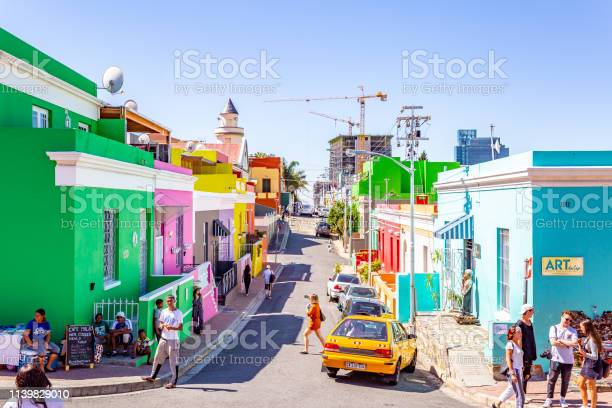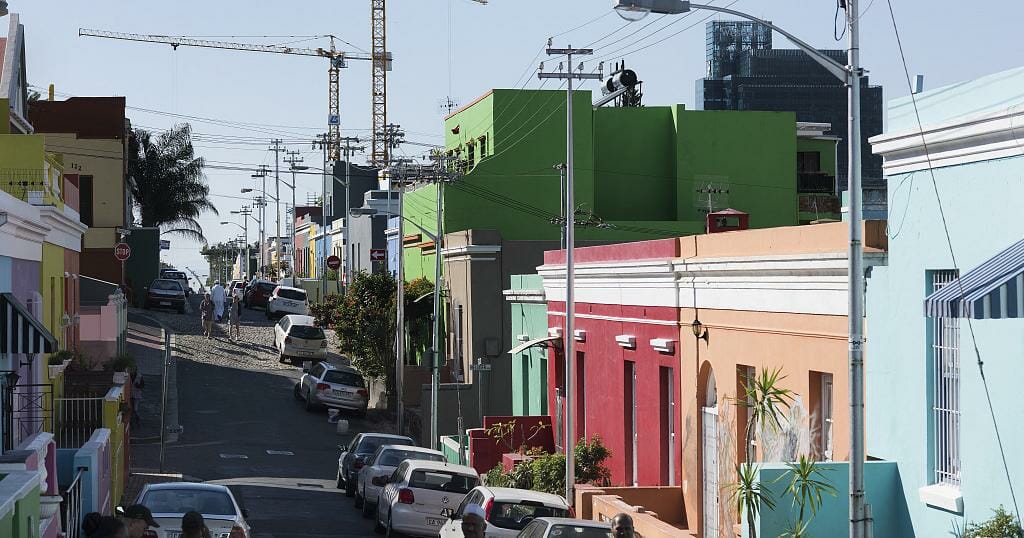www.aljazeerah.info
News, January 2022
Archives
Mission & Name
Conflict Terminology
Editorials
Gaza Holocaust
Gulf War
Isdood
Islam
News
News Photos
Opinion Editorials
US Foreign Policy (Dr. El-Najjar's Articles)
www.aljazeerah.info
|
Editorial Note: The following news reports are summaries from original sources. They may also include corrections of Arabic names and political terminology. Comments are in parentheses. |
In South Africa, Cape Town's Muslim Quarter Protests Gentrification
January 16, 2022
 |
 |
|
The famous Muslim quarter called Bo Kaap in Cape Town, in South Africa. |
|
South Africa: Cape Town's Muslim quarter protests gentrification
By Africanews, with Anadolu, January 15, 2022
Buildings constructed as part of the urban transformation in and around the historic Malay Muslim neighborhood of Bo-Kaap in Cape Town are negatively affecting the architectural and cultural texture of the neighborhood.
Bo-Kaap, one of Cape Town's main tourist sites with its history, architecture, and colorful cobblestone streets, is located at the foot of Signal Hill, just west of the city center.
The Bo-Kaap district, which was built in the 18th century to be rented out to Malay Muslims who were captured by Dutch colonialists and brought to Cape Town as slaves, is considered the historical and cultural center of the Cape Malay people, descendants of the latter. people and make up the bulk of the district's population.
With its central location, unique architecture, and unique landscape, Bo-Kaap is also a center of attraction for the affluent white population and contracting businesses.
The modern buildings that have grown rapidly in and around Bo-Kaap in recent years raise concerns about the architectural texture of the historic district. The relocation of the affluent population to Bo Kaap and its environs raises the issue of "gentrification," which creates social, economic, and cultural pressure on the district's low-income population.
"Contract companies are building large high-rise buildings"
Bo-Kaap activist lawyer Seehaam Samaai told Anadolu Agency (AA) that the issue of "gentrification" is one of the biggest problems facing Bo Kaap in the post-apartheid era.
Stating that the buildings constructed in and around Bo-Kaap have damaged the architectural face of the historic district, Samaai said, "The big outsourcing companies come here and build these big high-rise buildings that you see, regardless of the historic heritage and culture of the Region." mentioned.
Samaasi pointed out that the religious and cultural structure of the Muslim neighborhood of Bo-Kaap has also been ignored in the process, adding, "Even though Bo-Kaap resisted the racist colonization laws of the apartheid regime, it cannot resist the economic apartheid that has resulted from gentrification. "He used the phrase.
Highlighting the importance of Bo-Kaap's inclusion in the Heritage Protection Area in 2019, Samaasi said, "This means that entrepreneurs coming to our area should look at and consider the impact of our heritage on this urban development. he said.
"The rental houses could only be painted white"
Samasii said the neighborhood was built in the 1790s to provide "rental" homes for Malay slaves, and their descendants also lived as tenants in homes for nearly 200 years.
Stating that the houses in Bo-Kaap, which are now famous for their colorful buildings, were not in these colors in history, Samaasi said, "Before the 1990s, the houses were mostly white because the rental houses could only be painted white." made his appreciation.
Samaasi said that after these rental houses were handed over to the locals in the early 1990s after long struggles, the people of Bo-Kaap began to paint the walls of their houses in different colors.
South Africa: Cape Town's Muslim quarter protests gentrification | Africanews
***
Share the link of this article with your facebook friendsFair Use Notice
This site contains copyrighted material the
use of which has not always been specifically authorized by the copyright
owner. We are making such material available in our efforts to advance
understanding of environmental, political, human rights, economic,
democracy, scientific, and social justice issues, etc. We believe this
constitutes a 'fair use' of any such copyrighted material as provided for
in section 107 of the US Copyright Law. In accordance with Title 17 U.S.C.
Section 107, the material on this site is
distributed without profit to those
who have expressed a prior interest in receiving the included information
for research and educational purposes. For more information go to: http://www.law.cornell.edu/uscode/17/107.shtml.
If you wish to use copyrighted material from this site for purposes of
your own that go beyond 'fair use', you must obtain permission from the
copyright owner.
|
|
|
|
||
|
||||||


